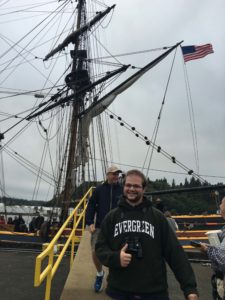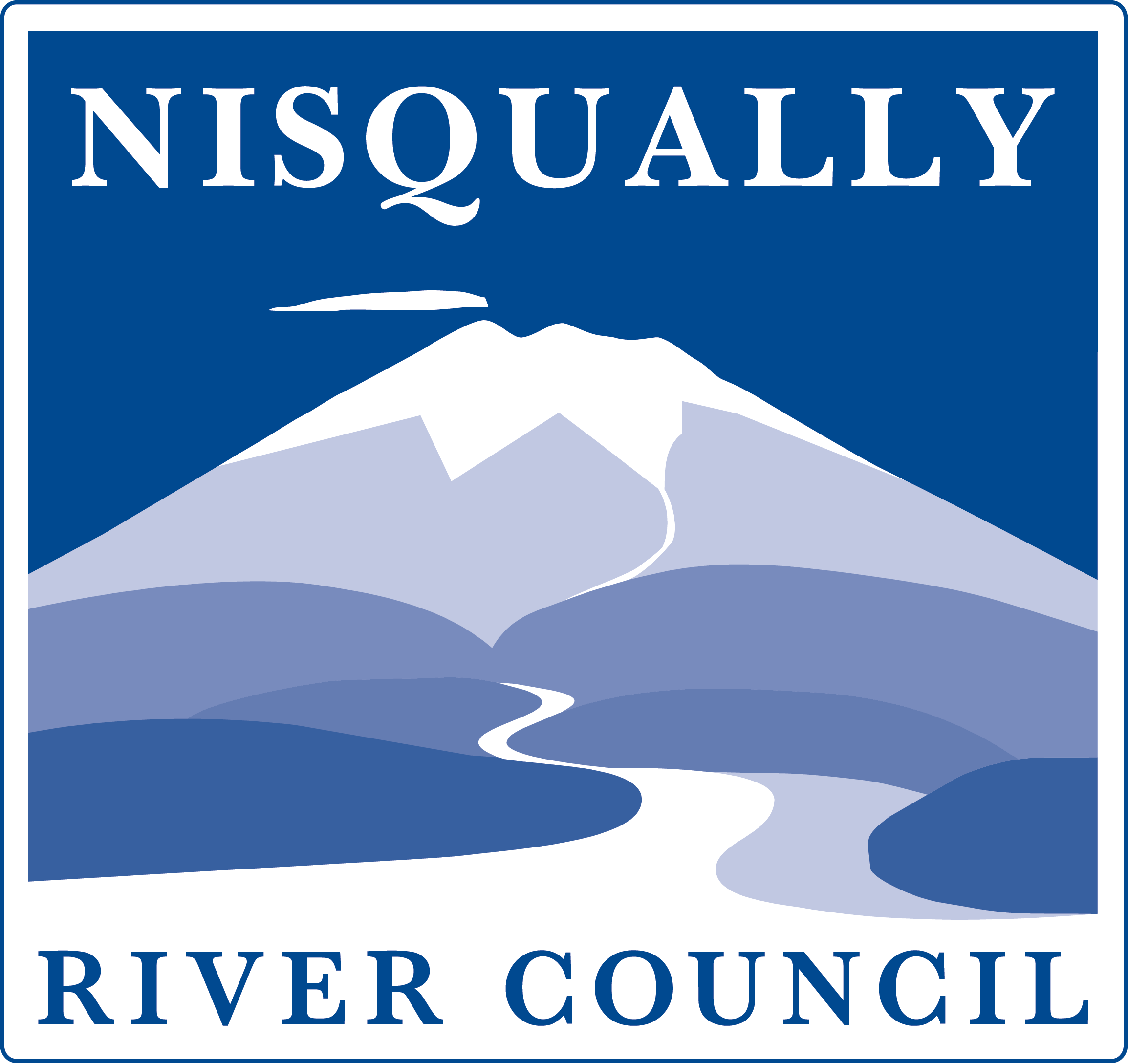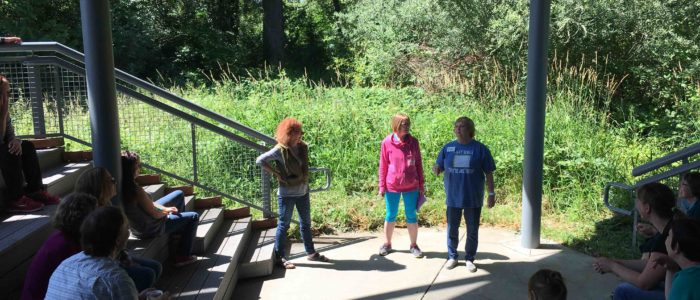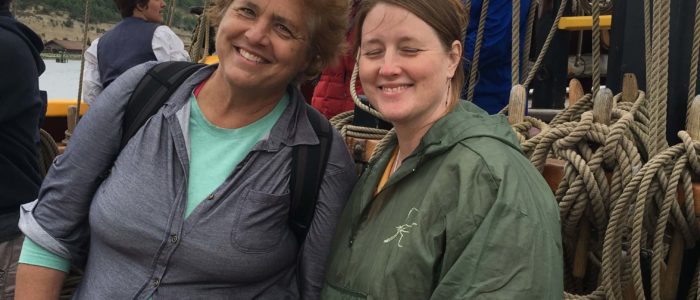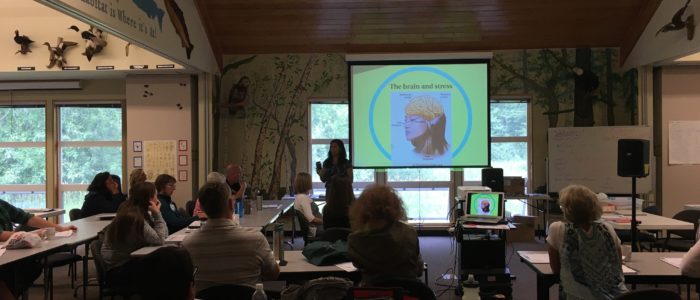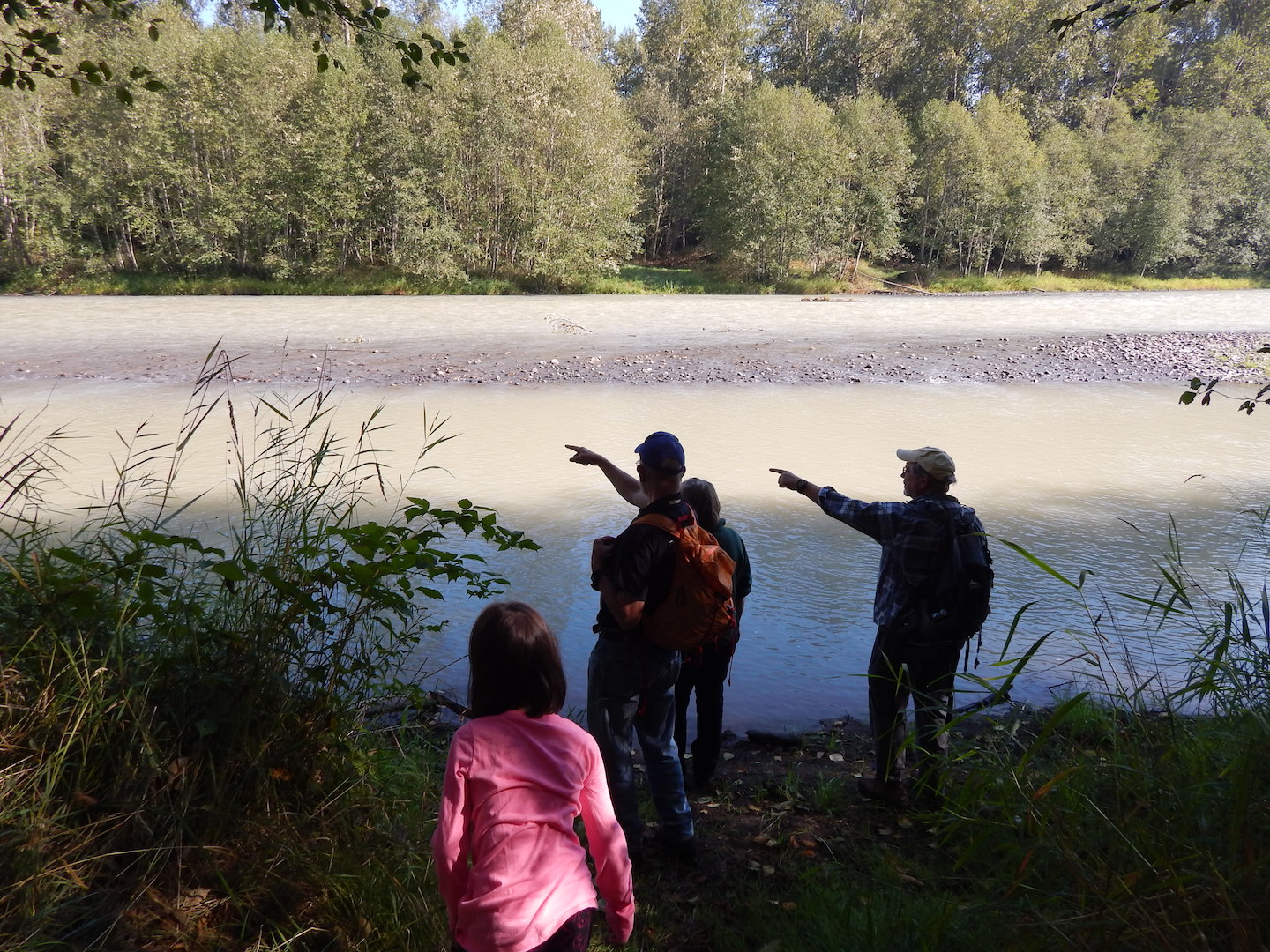Was it the topic, the amazing guest presenters from our NOAA partners in Seattle? The sail aboard the Lady Washington or our awesome local partners and the lessons they shared? Maybe it was the locally sourced yummy refreshments or the potluck lunch? Whatever the reason, we loved breaking our Summer Teachers Institute attendance record by including 61 local educators, grades 2nd-high school in this year’s Summer Teachers Institute!
With a topic like ours, Oceans: Ocean Acidification & Sea Level Rise, it’s really no wonder teachers were so enthusiastic to take part. This professional development opportunity included free clock hours sponsored by Yelm Community Schools and provided teachers hands-on learning opportunities supporting Common Core and Next Generation Science Standards with an in-depth look at some pretty complicated science topics. This program is being funded largely in part by NOAA’s Environmental Literacy Grant Program.
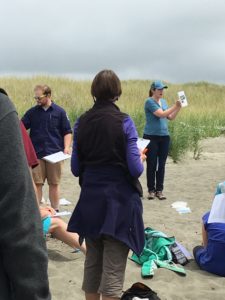
We started at the Billy Frank Jr. Nisqually National Wildlife Refuge for day 1, had fantastic keynote presenters ( Sea Level Change and Coastal Hazards in Washington – Bobbak Talebi, Coastal Planner with the Shorelands and Environmental Assistance Program, Department of Ecology and Nisqually Forest and Water Adaptation Plan – Morgan Greene, Program Coordinator, Nisqually River Foundation) and lots of great resources from our NOAA and local partners.
We spent day 2 visiting various locations around Grays Harbor and Westport beaches to learn how those communities are being impacted by Sea Level Rise and try out a citizen science program to monitor seabirds called COASST out of U of W.
Day 3 we returned to the refuge to hear from Nisqually Land Trust, Our Children’s Trust and Climate Solutions about their projects to reduce carbon emissions and impacts in our region. Then teachers learned about action projects they can engage their students in, such as Cool Schools Challenge, our 20,000 Tree initiative, and more.
Our aim is to create climate-literate teachers and students in our watersheds that will engage in Action Projects for Community Resiliency as we all grapple with our changing climate.
Check out our webpage for a full summary of resource, lessons, presentations, etc.
Many thanks to all of our community partners that made this possible! Billy Frank Jr. Nisqually National Wildlife Refuge, Chehalis Basin Education Consortium, City of Aberdeen, GRUB, Nature Conservancy, NOAA Northwest Fisheries Science Center, NOAA’s Office for Coastal Management, Pacific Shellfish Institute, South Sound GREEN,
